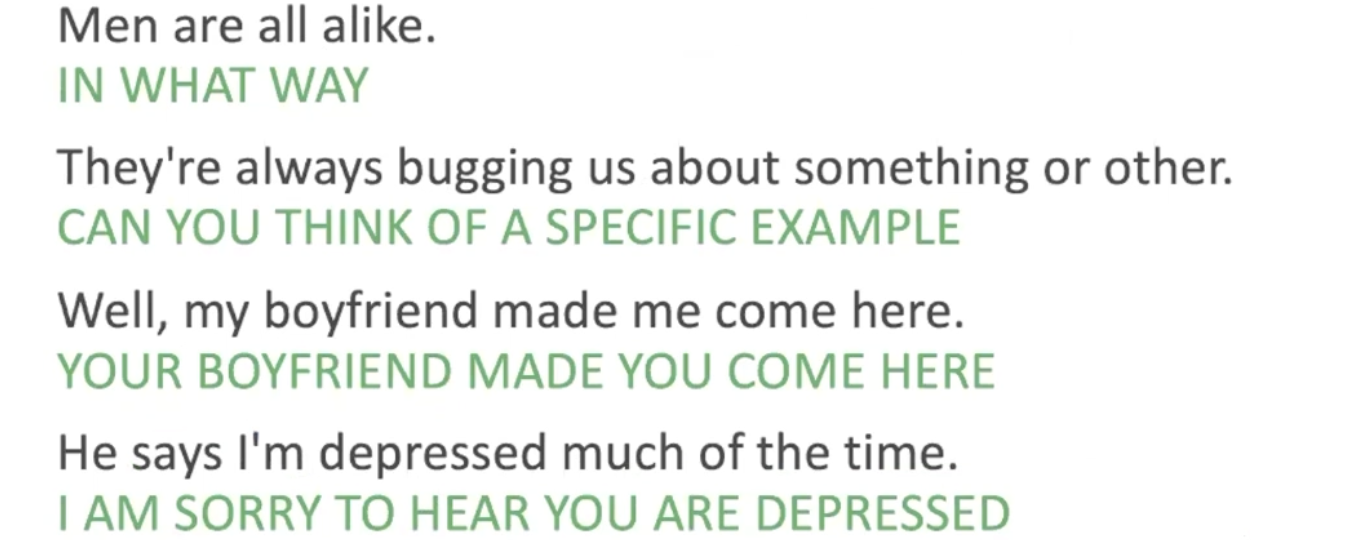Wizenbaum (1966)
works pattern-action rules by rephrasing user’s questions
“You hate me” => “what makes you think I hate you”
Rogerian psycotherapy: assume no real-world knowledge; simply draws out patient’s statements
I need X => what would it mean to you if you got X.

uses regex
capture specific adjectives, “all”, “always”, etc. and responds accordingly
Eliza Rules
patterns are organized by keywords: a keyword has a pattern and a list of transforms:
e.g.:
keyword: you
(0 you 0 me)
(what makes you think I 3 you)
(why do you think I 3 you)
Keywords are ranked from specific to general: each keyword has a rank, where most specific keywords words are most highly ranked, and then expansions are picked with the one with the highest keyword rank.
“my transform”
whenever the keyword “my” is used, we will pop a transformerd utterance onto the memory list (“earlier you said your”…) in a FIFO queue.
later if we don’t know what to say we just pop something off
ethical implications
- people maybe mislead by computer understanding
- face to face interaction is vital
- people develop specific relationships with artifacts: such as a diary
- value sensitive design: consider benifits, harms, etc.